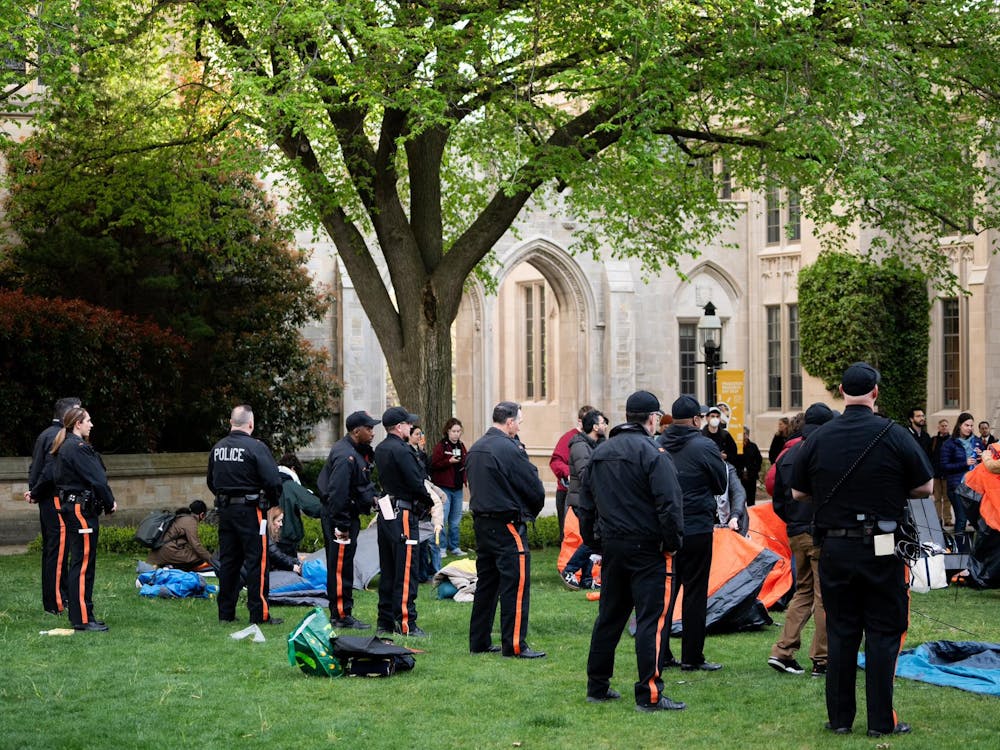1986 –Around the time of the Reagan-Gorbachev summit in November, the “Washington Post” and the “New York Times” ran articles on Mikhail Gorbachev's view of America. They reported that Gorbachev saw the U.S. as a nation dominated by business interests, ruled by a small clique with little concern for the interests of most Americans.
Both the Times and the Post discounted Gorbachev's view as ridiculous, but in some cases his portrait of the US seems quite accurate. One such case is the issue of gun control, in which a small, wealthy clique, the leadership of the National Rifle Association, has been able to impose its irrational views on the nation as a whole.
Last week the House Judiciary subcommittee on crime held a hearing on the McClure-Volkmer Gun Decontrol Bill, which passed the Senate in July.
Among other provisions, the bill calls for reinstatement of mail order gun sales. McClure-Volkmer would also allow anyone to buy or sell guns across state lines — eliminating record-keeping requirements which help the police trace handguns used in crime. And surprise inspections of gun dealers would be banned, enabling dealers to easily hide violations of the law.
Law enforcement groups and police organizations across the nation have condemned the bill, contending that it would make it even simpler for criminals to use guns and get away with it.
Over the years statistics have hammered home the idiocy of America's weak gun laws. More than 10,000 Americans are killed yearly by criminals with handguns. In Great Britain, where the weapons are strictly controlled, the number of victims hovers at around 50 per year.
In poll after poll, Americans have demonstrated overwhelming support for stricter handgun control laws.
Yet the bill passed the Senate easily, and if it weren't for Pete Rodino (D-NJ), chairman of the House Judiciary Committee and a staunch advocate of gun control, it would have little difficulty getting through the House.
Obviously, there is a reason for the McClure-Volkmer Bill's success up to now. That reason is the National Rifle Association (NRA), probably Washington's most effective lobby. The NRA strongly supports McClure-Volkmer, and President Reagan, a dues-paying NRA member, is also for the bill.
Attorney General Edwin Meese 111, who declined to testify before the House subcommittee on crime, immediately granted a meeting to NRA officials, according to the Newark Star Ledger. The NRA was worried about reports that Meese and others in the Reagan Administration were opposed to the bill. Granting higher priority to a reactionary political group than to the US Congress seems a bit odd, although in Meese's case it is to be expected.
The NRA, which claims it can deposit 500,000 irate letters from members on the desk of any opponent in less than 72 hours, seems to have cowed most of the Congress into supporting the bill. According to the Washington Post, 170 House members have signed a petition to bypass Rodino's Judiciary Committee and move the bill to the House floor. Forty-eight more signatures are needed for the petition to take effect.
Almost every time the issue of gun control comes up, the NRA is able to bully America's legislators into doing things its way. In states where the NRA is weak, like New Jersey and Massachusetts, meaningful gun control laws have been passed. But unless national legislation is enacted, these state regulations have limited effect.

The NRA achieves its successes through excellent organization, overblown rhetoric and occasion judicious use of huge sums of money. In California in 1982, gun control advocates put a moderate handgun registration proposition on the ballot. At first, most Californians supported registration, but after a vicious campaign in which the NRA outspent its opponents seven to one, 20 percent of the votes shifted, and the proposition was defeated.
Other NRA successes are less obvious. The group has claimed credit for the defeat of countless senators and representatives, but many of the Congressmen they name as victims would have lost regardless of any effort on the NRA's part. The organization's rhetoric often resembles that of terrorist groups who claim credit for violent acts regardless of whether they were actually involved. But politicians tend to believe in the NRA's threats, so the question of their validity is irrelevant.
The NRA's motives in opposing virtually all forms of control are unclear. In an ad in the most recent issue of Life magazine, police chief and NRA member David Howell contends that "some organizations representing police officers have been misled by misinformation given to them by small but noisy anti-gun groups."
It seems more likely that it is Howell who is misled. The majority of the NRA's one million members are normal citizens like Howell. But the organization's central leadership is a secretive group often concerned more with the interests of the gun and ammunition industry than those of its members.
NRA leaders like to cite the threat to individual rights posed by any form of gun control. Harlon Carter, the group's former president, once wrote that "registration and licensing (of guns is) but a convenient step on the pathway to their confiscation and prohibition," and "gun prohibition is the inevitable harbinger of oppresson (sic)."
But virtually no one is calling for gun prohibition. And even prohibition of Saturday Night Specials, small handguns good for little else but killing people, is a far cry from banning shotguns, rifles or revolvers used for sport, hunting and protection.
It seems more likely that the NRA's rhetoric and lobbying is devised to cater to manufacturers of weapons and ammunition, both American and foreign. Many top NRA executives worked previously in the industry. As advertisers in the NRA's magazines, American Rifleman and American Hunter, these companies pour millions of dollars yearly into the organization's budget, and it is they, not misguided gun owners like Chief Howell and President Reagan, who determine the organization's course.
Justin Fox '87 was an Editorial Editor of the Daily Princetonian.








